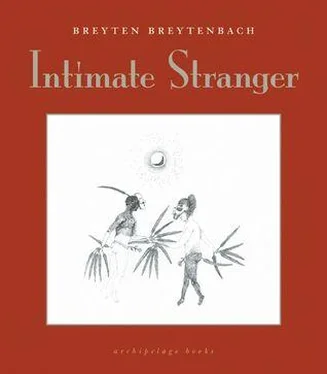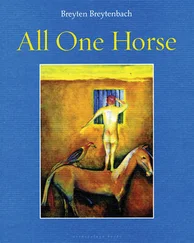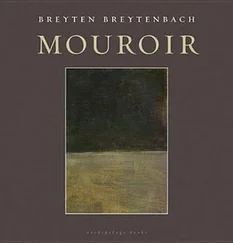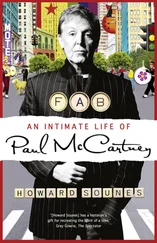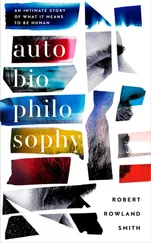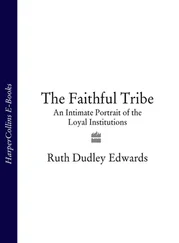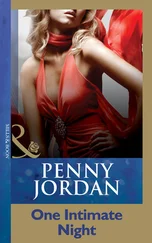I write the above on a blue day outside Poble Gran, making notes for the book I’m working on, to be called On The Art Of Being Intimate With Strangers . I’m sitting in front of the ancient stone-walled house of Can Ocells, still in the shade of the cloak of night. August 15th is always the moment of turning, around the Mediterranean the air becomes cooler. It will be as if everything comes to its senses after the folly and the heat of summer. Your ears still sing with the intensity of flames. Now there’s withdrawal, rethinking. Nights are getting longer. Plants — the laurel shrubs, some rosebushes — take heart and go into a second and more gentle blooming. The rosemary bush and the patch of mint are in flower: bees are busy and multi-hued butterflies are at work like fluttering handkerchiefs from scent to scent — goodbye, goodbye. Over the distant volcanic mountain range toward Banyoles and Olot a white cloud has unfurled its sails and a pink hot-air balloon (a mongolfière ) drifts along on its flame. Swallows dart and swerve, sharply outlined against the sky. Other birds are twittering and chirruping their morning prayers. Yesterday I spent cutting back an overgrown climber, pulling up weeds and nettles, hacking at bramble bushes, training the honeysuckle, stacking cut branches for the winter. I watered the vines, the olive and the palms. The weeds will all grow back and the nurtured plants come to naught as if nothing had happened. Man’s hand is ineffectual. The pruning and shaping will have to be recommenced eternally. Some plants will die and others will survive our prolonged absence to suddenly spurt flowers and sweet odors.
As a friend of mine once said: “Those who live will see; the dead will have to peep through closed eyelids as if looking into the mirror.” They are twin brothers under the skin, breath and death. Why does it all make me feel so good ?
1. A young person writes (could it be you, Reader?), asking what poetry is for. “What is it about ?”
How must I answer the question? A verse of Czeslaw Milosz rises to the surface:
The purpose of poetry is to remind us
how difficult it is to remain just one person,
for our house is always open,
there are no keys in the door
and invisible guests come in and out at will
Implicit in these lines is the argument that ‘one’ should try to remain one . I will counter that poetry is ‘about’ our multiplicity, our un-fixedness, our fluidity. About how we are modified by the ancestors and the ghosts, taken possession of by the invisible guests. Voices also need a house to sleep in.
But how to approach such a vast subject? Historically? Ideologically? Within its present permutations? Or perhaps, creatively? In the same way that a notion acquires meaning in the search for it, the reader will form the perception. I have no idea what you wish to hear. Besides, do you, as readers in the plural form also, have any cohesiveness? Can I say anything worthwhile to fit the listening where expectations and experiences diverge?
Let me try. This is what I’ll convey to her (to you):
First we must speak of the surroundings in which our exchanges take place, for all of us are subject to what may be called the ambient discourse, even if only in our angry rejection of the fuzziness of the lexicon. In this post-colonial world where we dwell, our cultural composition of many parts accentuates an excessive vagueness and nicey-niceness when we meet (for we all lean backward over our shadows in order to be ‘tolerant’ in respecting differences): perhaps that is why we have settled, publicly at least, for a corrupt, cliché-infested sociology-speak. Is it the ultimate expression of self-indulgence not to be ‘personal’? Or are we masking in this way our profound indifference to the other? The post-modernist discourse with its facile moral feel-good spin-off, has led to a wallowing in the troughs of the self. We think it is intellectually challenging to be fucking flies. (Thank God for the right to abort.)
Whoa, you say. Hold your horses and pigs before they trample our contract of decent intercourse at the trough! Who is this ‘we’ you’re passing, hoping that we won’t notice the unbuttoned flies?
I’ll tell you. For the purposes of my argument it is the public figure with the many mouths, the responsible and deeply concerned citizen who thinks he or she (still) has a contribution to make toward redrafting a better world, who may want to cling to stalwart concepts of economic and social justice, equal opportunities, decency, dignity and grace and elegance and humanism and responsibility as opposed to that ‘cutting-edge’ claptrap of a devalued vocabulary promoting lazy thinking and cynicism — and thus a morbid value system — in which we all have to live with awesome cool . You could say the ‘we’ is the rebellious multiple mouth with no correct mind-mindedness of its own. But it happens to be the me-we you addressed your question to.
Language, you see, is terribly important. It must be rectified incessantly. “All wisdom is rooted in learning to call things by the right name” (Confucius). Depriving people, however insidiously, of the possibility to use the fiery route between thought (or emotion) and expression, the mother tongue of texture and color, the unambiguously inhabited language which allows you to fight and fold the matter, perhaps even accede to the authentic echo of origin embedded in the word — is to draw them out onto the shallow terrain of hollow demagoguery, of convoluted qualifications and empty statements, of fly-fucking in other words, and ultimately to that alienation where the borrowed language of modernity becomes devalued.
2. “To idealize [here I’m quoting Martin Amis from a recent essay in The Guardian ]: all writing is a campaign against cliché. Not just clichés of the pen but clichés of the mind and clichés of the heart. When I dispraise, I am usually quoting clichés. When I praise, I am usually quoting the opposed values of freshness, energy and reverberation of voice.”
Sounds admirably pure. But is the language of creativeness really all that different from the learned porridge we serve in the academy? Well, yes and no. No , as every creative linguistic expression should obviously always be an inventive effort at using the known or the understood to propose more applicable or transforming concepts. Yes , since poetry is a precise and tactile tongue, even though it can be called ‘universal’ because it always speaks poetry, irrespective of the language it inhabits or hides in. “Poetry is my mother tongue.” (Yang Liang)
Visual art is a language with its own alphabet. Music is a language replete with intent and with meaning and yet without words. These and other forms of artistic expression are the primary or original languages. They differ from our everyday working verbal tools — philosophy, science, theology, sociology and politics — in that they’re not dependent on a consensus of lexical or contextual meaning. The languages of creativeness certainly also mean (they may even make sense and sentences ), but the meaning is carried by the totality of means at their disposal: color, texture, echo, absence, shape, etc. They are both non-elusive and endlessly allusive. More than that, these languages are bound to forge new meanings, to transform perception in the real sense of the term. Ideally they don’t carry meaning but become as many meanings as there are minds. A poem is not just a statement or a lining or limping up of words; it is also the actualization of metamorphosis in process. You may say it is thought on its way to the unthinkable.
Читать дальше
